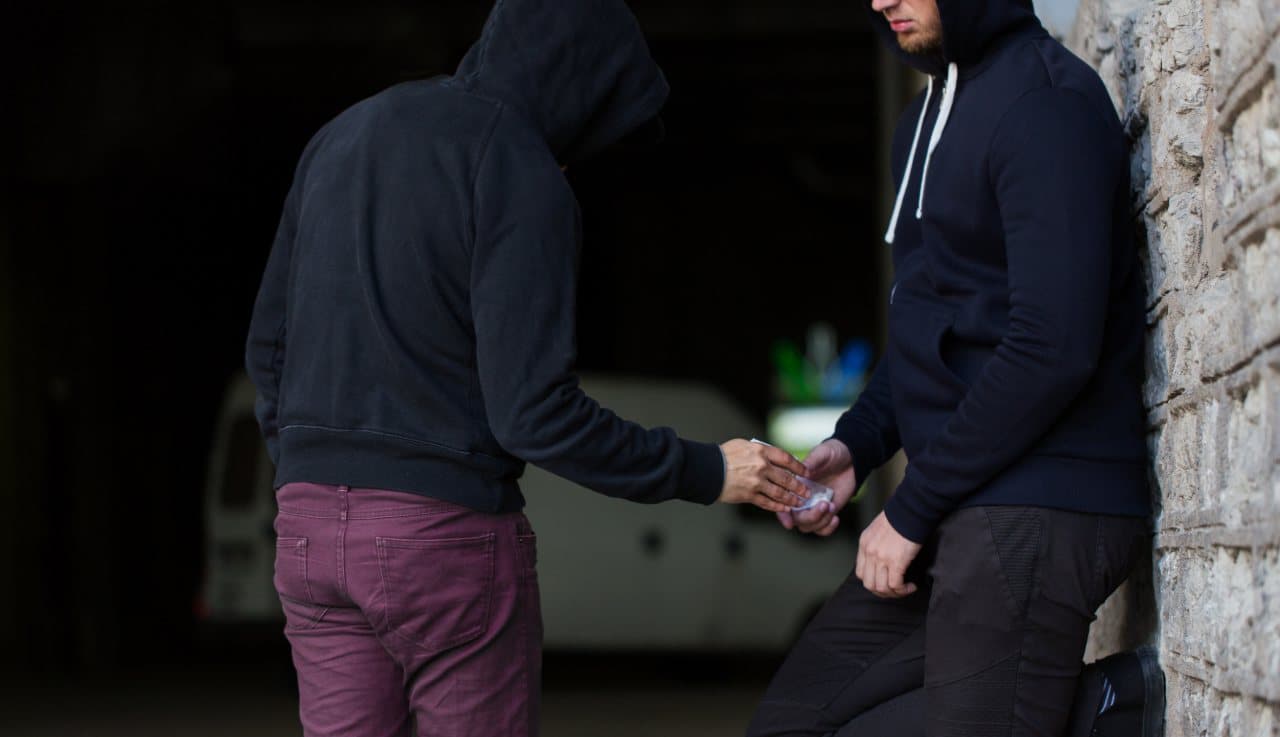The elements of the crime of possession with intent to distribute or drug trafficking are:
It is the final one of these elements that distinguishes possession for sale of a drug from mere possession.
It is important to remember that the State has the burden to prove that you were in possession of a certain drug and that you sold or intended to sell that drug. Many times, proving felony drug possession is fairly easy but the intent to distribute is where the drug trafficking case becomes difficult for the State to prove.
When a case lacks direct evidence of an actual drug transaction occurring, the State will often rely on expert testimony. These experts will attempt to establish that in addition to the drugs found there is other evidence or there are signs of drug trafficking. This evidence is commonly referred to as indicia of sale. Examples of indicia of sale include:
In drug trafficking cases, if the State is unable to prove that you not only possessed a drug but that you sold or intended to sell that drug, then you are only guilty of a lesser offense of felony possession of drugs.

The consequences of drug trafficking can be severe under Arizona law, even for a first offense. Prior drug sale convictions or prior felonies can increase possible punishments. That said, drug trafficking of narcotic drugs, dangerous drugs and marijuana is a class 2 felony. The maximum and minimum punishment that you can expect after a conviction for a class 2 felony is:
1. The amount of the drug seized;
2. The type of drug for sale;
3. Any additional charges to the drug trafficking offense; and
4. Any prior criminal history.
If a person caught with an amount of a specific drug for sale that is over the Arizona statutory threshold amount, they are not eligible for probation and must be sentenced to prison. Under ARS 13-3401(36), the Arizona statutory threshold amounts are as follows:
A conviction for either luring a minor or aggravated luring requires mandatory registration as a sex offender and may be punishable under DCAC depending on the age of the minor.
What amount of drugs is considered trafficking? While the threshold amounts create a presumption of intent to sell, actual trafficking charges can depend on additional factors like distribution methods, packaging, or large-scale operations.
Arizona differentiates drugs and punishes some drugs more harshly than others. Listed below are drugs that fall outside of the standard drug trafficking sentencing structure:
Drug trafficking of methamphetamine has a special sentencing structure. If convicted of possession with intent to distribute methamphetamine and the amount is over the Arizona statutory threshold amount, a person is not eligible for probation and must be sentenced to prison. Punishment for a class 2 felony sale of methamphetamine is:
Sale of prescription-only drugs is a class 4 felony, unless the prescription drug is not also a narcotic or dangerous drug in which case the offense is a class 2 felony. Punishment for a class 4 felony is:
Sale of vapor releasing substances is a 5 felony. Punishment for a class 5 felony is:
It is fairly uncommon to be charged with drug trafficking alone as the nature of drug operations inherently give rise to additional charges. Other common crimes charged in addition to charges of drug trafficking include:
SIDE NOTE: When money, cars, homes, businesses, weapons and other property are seized in connection to a drug trafficking charge, criminal forfeiture proceedings should be expected. These proceedings are separate from any criminal charges.
Prison is a mandatory sentence for many drug trafficking charges under Arizona law, even for a first offense. However, if a person has prior criminal history, the potential consequences of drug trafficking convictions increases dramatically.

While drug trafficking charges are serious charges, there are defenses that can be raised, and raised successfully. Some of the more common drug trafficking defenses and strategies include:
Many possession with intent to distribute cases involve sting operations or use of a confidential informant. More often than not, these informants are being paid or working off their own drug charges. Establishing and eroding the credibility of a confidential informant’s testimony is an essential a part of an effective defense.
Other drug trafficking cases involve reverse sting operations with law enforcement or sale to an undercover officer which gives rise to a defense of entrapment.
With the shere number of drug sale cases that arise out of government wiretaps, it is absolutely necessary to examine the wiretap warrant requirements to ensure that proper procedures were followed. When strict procedures are not followed, entire cases can be thrown out of court.
The State has the burden of proving that the drugs found were actually for sale and not just for personal consumption. By challenging the indicia of sale evidence obtained by law enforcement it possible to argue for a lesser possession offense rather than a more harshly punished drug trafficking charge.
The primary evidence in many drug cases consists of the drugs themselves. The scientific testing methods and procedures for weighing the drugs, therefore become paramount to the case. Challenging the methodology and results of the State’s physical evidence is crucial.
The manner in which drugs, supplies and cell phone evidence are discovered and seized often raises issues of illegal search and seizure. In some cases, a motion to preclude such evidence as having been unconstitutionally obtained in violation of the Fourth Amendment, may successfully bar the evidence from being introduced at trial, and this, in and of itself, can in many cases lead to a dismissal for lack of evidence.
In addition to seizure related Constitutional challenges, many drug cases involve the potential for Miranda violations, right to counsel violations and due process violations.

The skilled drug trafficking lawyers at Feldman & Royle, represent clients charged with all manner of drug crimes in the greater Phoenix area. Defending drug trafficking charges is a specialized field and we have the experience and knowledge required to mount an aggressive defense of your case.
Developing and mounting a strong defense strategy is what the drug trafficking lawyers at Feldman & Royle have been doing for years. In an effort to explain Arizona’s complex drug laws, our defense attorneys in Phoenix offer a free confidential consultation to discuss Arizona drug trafficking charges and how a drug trafficking lawyer can impact your specific case.

No tags assigned to this post.